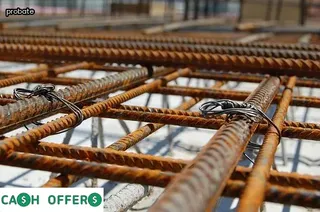Navigating probate and real estate in South Carolina can be a difficult process, and it is important to understand the laws of the state when handling these matters. South Carolina probate law is used to settle the estates of deceased persons, as well as determine which heirs are entitled to receive assets from the deceased person's estate.
The documents associated with this process must be filed with the court, and an executor must be appointed by the court to manage the estate. This executor is responsible for making sure that all debts are paid off, taxes are settled, and assets are distributed according to the terms of the will or pursuant to applicable state law if there is no will.
It is essential for individuals involved in South Carolina probate proceedings to have a clear understanding of their rights and obligations under South Carolina probate law in order to ensure that all aspects of the process go smoothly. Additionally, real estate transactions occurring in South Carolina must abide by certain rules and requirements set forth by both state and federal law.
It is important that anyone involved in such a transaction understands what those laws entail so they can protect their rights throughout the process.

The probate process in South Carolina is often surrounded by misunderstandings and incorrect assumptions. One of the most common misconceptions is that it is always a lengthy process, which is not true.
The amount of time it takes to complete the probate process depends on the size of the estate and the complexity of any disputes that may arise. Additionally, many people believe that an expensive attorney must be hired in order to navigate probate, when this is not necessarily the case.
In some situations, an executor or administrator can handle the proceedings without legal assistance. Additionally, it is important to remember that there are certain limits established by state law regarding what can be done through probate and when certain items must be distributed from an estate.
Real estate transactions fall into this category and involve additional paperwork and legal steps for them to be completed properly. Understanding these nuances can help ensure a smooth transition of real estate assets during probate proceedings in South Carolina.
The distinction between intestate and testate estates is an important one to understand when navigating probate and real estate matters in South Carolina. Intestacy occurs when someone dies without leaving a will, meaning the state's laws of intestacy dictate how their assets are distributed.
This can lead to family disagreements as the law does not take into account any special wishes or requests. On the other hand, a testate estate is created when someone leaves a legally valid will that details how they would like their assets divided among beneficiaries after death.
In this case, the executor named in the will is responsible for ensuring all instructions are followed and that taxes and fees associated with probating the estate are paid before assets can be distributed. It is important to be aware of these differences in order to successfully navigate probate and real estate matters in South Carolina.

In South Carolina, probate is the legal process of settling an estate upon the death of a loved one. In order to begin the probate process, a variety of specific documents must be filed with the court.
These documents include a certified copy of the death certificate, Last Will and Testament (if applicable), an original Letters Testamentary (issued by the court) and an inventory list of all assets included in the estate. Additionally, an executor or administrator is appointed to represent the estate during probate proceedings.
The executor or administrator must also provide proof of his or her appointment to act on behalf of the estate. The executor or administrator must also provide an oath affirming that he/she will faithfully discharge their duties according to law and will render a true account of his/her transactions when requested by law.
Once these requirements are met, additional documents may need to be filed in order for real estate properties included in the estate to be conveyed properly. It is important for those navigating probate and real estate in South Carolina to understand what is required to ensure that all necessary legal steps have been taken prior to closing any real estate transactions involving a deceased individual's property.
Once the deceased individual’s will has been accepted by the probate court, the executor of the estate is generally authorized to begin the process of settling and distributing the estate. In South Carolina, this usually involves filing an inventory of assets with the court and publishing a notice in a local newspaper.
This notifies creditors and other interested parties that they have a limited time to make claims against the estate. Following this step, an executor may be authorized to distribute assets as specified in the will or they may require additional court orders before making distributions.
The executor should also ensure that all taxes due on behalf of the estate are paid in full prior to finalizing any probate proceedings. As each state has its own unique rules for navigating probate and real estate, it is important for an executor to understand all applicable laws before moving forward with any action related to settling an estate in South Carolina.

An Executor is a person designated to carry out the directions and wishes of the deceased. During the probate process, an Executor must fulfill multiple responsibilities, such as locating and safeguarding assets, notifying heirs and creditors, paying debts, filing court documents, and finally distributing assets according to the terms of a will or other legal document.
An Executor should be familiar with South Carolina’s real estate laws and probate rules so that they can effectively manage the property of the deceased. The Executor must follow all laws regarding their actions during probate in order to ensure that all rights are respected.
If any legal disputes arise, the Executor may need to hire a lawyer on behalf of the estate to protect its interests. To successfully navigate this complex process, it is important for an Executor to have knowledge of both real estate and probate law in South Carolina.
In South Carolina, beneficiaries of an estate have certain rights and privileges that must be honored during the probate process. Beneficiaries are owed the right to receive timely notices regarding any proceedings or decisions that may affect their interests in the assets of the estate.
They also have a right to request information about estate proceedings, including documents such as inventories and accounts. Beneficiaries also have a right to challenge any expenses they deem unreasonable or unnecessary during probate.
In addition, beneficiaries are entitled to notice if their interests in the estate change due to modifications resulting from creditors' claims or other factors. Finally, they are entitled to timely distribution of assets once all debts and taxes are paid out of the estate.
It is important for beneficiaries to understand their rights during probate so that they can protect their interests in the estate’s assets.

Navigating the complex laws surrounding probate and real estate in South Carolina can be a daunting task for those without legal experience. For those seeking guidance on whether or not to hire a probate attorney, it is important to understand when such an expert is necessary and when other services may suffice.
In many cases, a qualified probate lawyer can offer invaluable assistance throughout the process of settling an estate, from filing paperwork to preparing and litigating a will contest. Furthermore, probate attorneys are well-versed in navigating the intricacies of South Carolina real estate law and can provide much needed advice when it comes to transferring property or resolving disputes between heirs.
While there are other alternatives for those needing help with probate-related matters, such as financial advisors or accountants, hiring a lawyer who specializes in this area of law is often the best decision for individuals dealing with complex estate planning issues.
The cost of going through the probate process in South Carolina can vary greatly depending on the complexity of the estate. Generally, it will involve a filing fee, publishing fees for notices, and attorney's fees.
Filing fees are typically non-refundable and may range from $150 to $400. Publishing fees may also be required if the decedent died testate (with a will) and are usually based on the number of publications required by law.
Attorney’s fees are often paid out of the estate’s assets but can include an hourly rate or a flat fee plus costs incurred while handling the case. If there is real estate involved, additional costs such as title searches, appraisal fees, and transfer taxes may also be necessary.
It is important to understand all potential costs associated with navigating probate and real estate in South Carolina before beginning the process in order to ensure that it is completed efficiently and cost-effectively.

Navigating probate and real estate in South Carolina can be a daunting task for those unfamiliar with the process. However, there are benefits to avoiding probate which can save time and money as well as simplify the process of transferring property.
By avoiding probate, heirs can receive their inheritance more quickly since the court does not have to appoint an executor to administer the estate and oversee distribution of assets. Additionally, beneficiaries may be able to avoid paying certain taxes that may otherwise be due during probate proceedings.
Furthermore, by avoiding probate, families may reduce or eliminate costly legal fees associated with filing court documents and having them approved by a judge. This also helps ensure privacy since the details of the estate do not have to be made public record through a will or other legal document filed with the court system.
Finally, avoiding probate can help minimize delays that would otherwise occur when dealing with a lengthy court process.
When a loved one passes away in South Carolina, their assets must go through the probate process. Before distributions can be made, it is important to determine if a tax return will need to be filed for the decedent's estate.
In order to answer this question, it is important to understand what probate entails and how it relates to real estate in South Carolina. Probate generally involves locating and notifying beneficiaries, collecting all of the decedent's assets, paying out any liabilities or debts owed by the estate, and filing a final tax return on behalf of the decedent.
The main factor that dictates whether or not a tax return needs to be filed depends on the value of the estate's assets including any real estate owned by the decedent at the time of death. If the total value of these combined assets exceeds $10,000 then filing a tax return may be required.
Additionally, certain forms must be completed for both federal and state taxes depending on whether or not there are any income-generating assets within the estate such as rental income from real estate holdings. Understanding what is required when navigating probate and real estate in South Carolina can help ensure that all necessary steps are taken to ensure compliance with state laws while also providing peace of mind during an otherwise difficult time.

Navigating probate and real estate in South Carolina can be a complex process and understanding the timeline of the probate process is essential. The typical time frame for completing the South Carolina probate process is largely dependent on whether or not the deceased left behind a will.
If there is a will, the executor must first accept their appointment, notify all applicable parties of the death, collect assets, pay any debts and taxes, and distribute remaining assets. This entire process may take anywhere from 6 months to 2 years to complete depending on how complicated the estate is.
If there is no will, then an administrator must be appointed who follows the same steps as an executor. In addition to these steps, it’s important to note that ancillary proceedings may need to be filed for property located outside of South Carolina which can add additional time onto the overall timeline of closing out the estate.
Probate law in South Carolina can be complex so it’s important to seek assistance from a qualified attorney when navigating through this process.
When navigating the probate process in South Carolina, it is important to be aware of what happens in the event of a dispute regarding an estate. Generally, if there is a dispute during the probate process, the court will appoint a special administrator or administrator ad litem to investigate and resolve the issue.
This individual must be approved by both parties involved in the dispute, but their decision is final. Typically, issues arise when one party believes they are entitled to a portion of an estate or have not been properly included in an estate plan.
In these cases, it is important for all parties to consult with legal counsel and provide evidence of their claims before bringing them to court. It is also recommended that all parties consider mediation as an alternative form of dispute resolution before taking further legal action.

In South Carolina, a probate court oversees the execution of an estate when the deceased has left a will. The executor is responsible for settling the estate, which includes paying debts, taxes and distributing assets to beneficiaries.
If an executor refuses to fulfill their duties, they may be held in contempt of court by the judge. The court can then appoint a different executor or require the original one to perform their responsibilities as outlined in the will.
In some cases, if an executor continually fails to follow through with their obligations, they may be removed from their position and replaced with another suitable party. Additionally, if any of the beneficiaries feel that their rights have been violated or that an executor is acting inappropriately, they can petition the court for relief.
In any case, it is important for all parties involved to understand what happens when an executor fails to carry out his or her responsibilities so that proper steps can be taken to ensure that all matters related to probate and real estate are resolved appropriately.
South Carolina recognizes several different types of wills, all of which are valid under state law. A formal will, also known as a testamentary will, is written, dated, and signed by the testator in front of two witnesses who also sign.
An informal will is not written and can be made orally or through any other type of communication such as a letter or email. South Carolina also recognizes holographic wills which are handwritten documents that include the signature and material provisions in the handwriting of the testator.
Nuncupative wills are oral declarations made in front of two witnesses during a testator's last illness and can only be used to dispose of personal property with a value not exceeding $1,000. Finally, South Carolina courts recognize lost wills if evidence is provided that proves it was written before death.

In South Carolina, the concept of legitimation affects inheritance rights in an important way. Legitimation is a legal process that establishes the paternity of a child, often in cases where the father was not married to the mother at the time of birth.
Once legitimation is established, it grants a child equal inheritance rights as children born in wedlock and allows them to participate in estate settlements and probate proceedings. Legitimation can be achieved through court order or through acknowledgement by both parents in writing witnessed by two people.
It's important to note that only certain people are eligible for legitimation; non-adoptive stepchildren, those over 18 years old, and those born after their father's death do not qualify. Although there may be additional requirements depending on individual circumstances, understanding how legitimation affects inheritance rights can help simplify navigating probate and real estate issues in South Carolina.
In South Carolina, the responsibility for paying off the debts of a decedent’s estate after their death falls to the individuals or entities named in the decedent's will. If there is no will, then the debtors must be paid by the personal representative of the estate appointed by a probate court.
Before any distributions are made to heirs or beneficiaries, all debts including funeral expenses and court costs must first be paid off. Creditors may file claims against an estate if they are not satisfied within 90 days following notice of probate proceedings.
Claims must be filed with the clerk of court where probate was initiated. If sufficient funds are not available to pay all creditors, then they must be paid in order of priority as set forth under South Carolina law.
All creditors must be treated equally according to their respective classes when it comes to payment from an estate.

Creating a Last Will and Testament (LWT) is an important part of estate planning in South Carolina. An effective LWT should include essential elements such as identifying the testator (the individual making the LWT), appointing an executor to carry out the wishes of the testator, designating beneficiaries to receive specified assets, and declaring how any remaining assets will be distributed.
It’s important that all property listed in the LWT have clear titles, so probate can be handled efficiently. If there are any minor children involved, guardianship should also be established as part of the LWT.
Depending on a person’s situation, other elements such as trusts and tax provisions may need to be included in order for an LWT to be comprehensive and legally binding in South Carolina. A qualified attorney should always be consulted when creating or revising an LWT.
Navigating probate and real estate in South Carolina can be a complex process for those left with the responsibility of settling an estate after death. It is important to understand the steps that must be taken in order to begin the process.
First, the executor of the estate must obtain a copy of the will or petition for administration if there is no will. The executor must then contact all relevant parties such as creditors and beneficiaries, and provide them notice of their rights.
Next, they will need to gather financial documents and determine whether or not tax returns need to be filed. After this, any outstanding debts must be paid and assets distributed as directed by the will or per state law.
In addition, it may be necessary to conduct an inventory of all assets owned by the decedent at death. Lastly, real property (land) must be identified and appraised if it was part of the estate.
By taking these steps, executors can ensure that estates are settled promptly and correctly in compliance with South Carolina law.

In South Carolina, the laws governing probate and real estate require that an executor distribute assets only after the probate process is complete. This means that if a deceased person has left behind any property or assets, these must be lawfully distributed to heirs and beneficiaries as defined by state statutes.
In some cases, the court may need to approve the distribution of certain assets in order to ensure that they are divided according to the legal requirements. If an executor wishes to distribute any assets before the completion of probate proceedings, they will likely need to obtain prior authorization from the court.
There are also restrictions on how long an estate can remain open for probate, so it is important for executors to adhere strictly to these timelines or risk having their requests denied by the court.
Yes, real estate does go through probate in South Carolina. The process for navigating probate and real estate law in the state can be complicated and time consuming.
Thankfully, this comprehensive guide offers valuable insight into all the necessary steps to ensure that you are compliant with the state's laws while transferring ownership of a property during probate. This guide will explain the different types of probate proceedings, which assets require probate, what is required to transfer title and other important considerations when dealing with real estate in South Carolina.
It also covers topics such as filing fees and deadlines, executor duties, taxes, liens and more. By following this guide closely, you can ensure that all aspects of your real estate transaction are handled properly and efficiently.

Yes, it is possible to sell a house while in probate in South Carolina. The process of navigating the probate and real estate in South Carolina can be complex and time-consuming; however, with the guidance of an experienced attorney, you can successfully sell a home during probate.
Before selling a home during probate, certain steps must be taken to ensure the legality of the sale. This includes filing various forms with the appropriate court and obtaining approval from the executor of the estate.
In some cases, court approval may also be necessary if there are any disputes between heirs concerning the sale of the property. Additionally, if there are creditors involved in the estate or debts that must be paid out, these must also be addressed before proceeding with the sale.
To make sure all parties involved understand their rights and obligations when navigating probate and real estate transactions in South Carolina, it is important to seek professional legal advice from an attorney who specializes in this area. With comprehensive knowledge and expertise on this subject matter, they can provide valuable information regarding how to proceed with a successful property sale while still abiding by all applicable state laws.
Yes, probate is required in South Carolina when a person passes away. Probate is the legal process of administering an estate after someone passes away and involves determining the validity of the deceased's will, identifying and inventorying their assets, paying creditors and distributing any remaining assets according to the terms of the will or state law.
In South Carolina, probate is handled by the Probate Courts throughout the state. The Probate Court handles all matters related to wills, estates, guardianships, conservatorships and trusts.
In addition to probating an estate, real estate must also be considered in South Carolina. Real estate must be transferred from a deceased individual’s name into that of their heirs or beneficiaries.
This requires filing documents with the Register of Deeds in each county where the property is located. It’s important to note that real estate cannot be transferred without successfully completing probate first in South Carolina.
Navigating probate and real estate in South Carolina can be complicated but with this comprehensive guide, you can understand what needs to be done to ensure all steps are taken properly and efficiently.
In South Carolina, there are several ways to keep your home out of probate and ensure that it is transferred properly after death. One of the simplest methods is to have a valid will in place that outlines your wishes for the transfer of real estate.
Additionally, you may opt to use a living trust, which allows you to avoid probate and transfer of property without going through the court system. Furthermore, if you own real estate as joint tenants with right of survivorship (JTWROS), then your share will automatically be transferred to the other owner when you pass away.
Finally, another option is to designate a beneficiary deed for your property; this deed transfers ownership upon death and does not require probate proceedings or court involvement. These options provide South Carolinians with various methods for avoiding probate and ensuring their property is passed on according to their wishes.